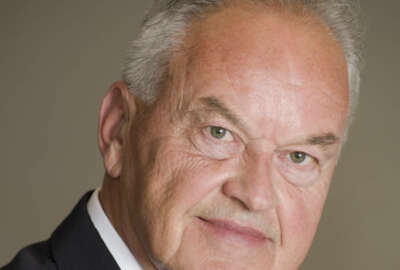
Government we deserve or government we get?
Do Americans get the government they deserve or deserve the government they get? Senior Correspondent Mike Causey tackles this zen-like riddle.
While taking some time off, I asked several loyal readers if they would write guest columns. We do this each vacation time and many people say they like the change of pace, the different ideas and the different bylines. Today’s guest column was written by Michael Lescz, president of the Professional Managers Association. Check it out:
Mike invited me to write on any topic I felt was important, so this is an opportunity for me to temporarily shift away from those issues that impact only federal workers and instead spend a few minutes on a concern that impacts all of our citizens and especially our children and grandchildren (we have one, Aiden!).
More commentary
While most of us have had the benefit of mentoring, guidance and role models as we grew up and during our chosen careers, one of the advantages that I had during my 40+ year career here at the Internal Revenue Service is that I had the opportunity to meet, and in some cases work with, world class experts in their respective fields.
In addition, my career provided the opportunity to interact with experts outside of the IRS, and gain a better understanding of how the dollars that we collect in the service are used by our government. One of those people was Gene Steuerle, currently an Urban Institute Fellow and the Richard B. Fisher Chair at the nonpartisan Urban Institute, and formerly Deputy Assistant Secretary of the Treasury. Recently, Gene wrote a piece that appeared in his periodic column on public policy, The Government We Deserve: Opportunity for All Isn’t Gonna Happen on this Path. Gene makes three observations on government spending per household and each child born today. His recent study (2016-26) finds that the U.S. budget is moving increasingly away from promoting opportunity for all with three major conclusions:
- First, the few programs that attempt to promote opportunity, such as work incentives and education, are scheduled to take a smaller share of available federal government resources.
- Second, if we wish to promote opportunity for all, we must carefully discern the outcomes pursued and judiciously measure how well programs achieve those outcomes.
- Third, there’s tremendous budgetary potential for promoting opportunity whether the government increases or decreases relative to the economy.
Gene has included a table of 2016-26 numbers in his column (tabulated from Congressional Budget Office data). When one looks at the numbers it appears that reorienting budget priorities could help in providing opportunity in ways that are likely to promote equality in earnings and wealth. What is also clear from Gene’s tabulations is that a small effort is not going to get the job done when the budget is moving in the direction of deform, not reform.
There is additional detail in Gene’s column and a link to his study. It is worth a look and some additional thought.
Have a great day!
— Michael Lescz, president of the Professional Managers Association
Nearly Useless Factoid
Joe Ayoob and aircraft designer John M. Collins set the world record for the longest paper aircraft flight on Feb. 26, 2014, at McClellan Air Force Base in California. Ayoob flew the plane, which was designed by Collins, 69.14 meters (226 feet 10 inches).
Source: Guinness World Records
Copyright © 2025 Federal News Network. All rights reserved. This website is not intended for users located within the European Economic Area.
Mike Causey is senior correspondent for Federal News Network and writes his daily Federal Report column on federal employees’ pay, benefits and retirement.
Follow @mcauseyWFED




